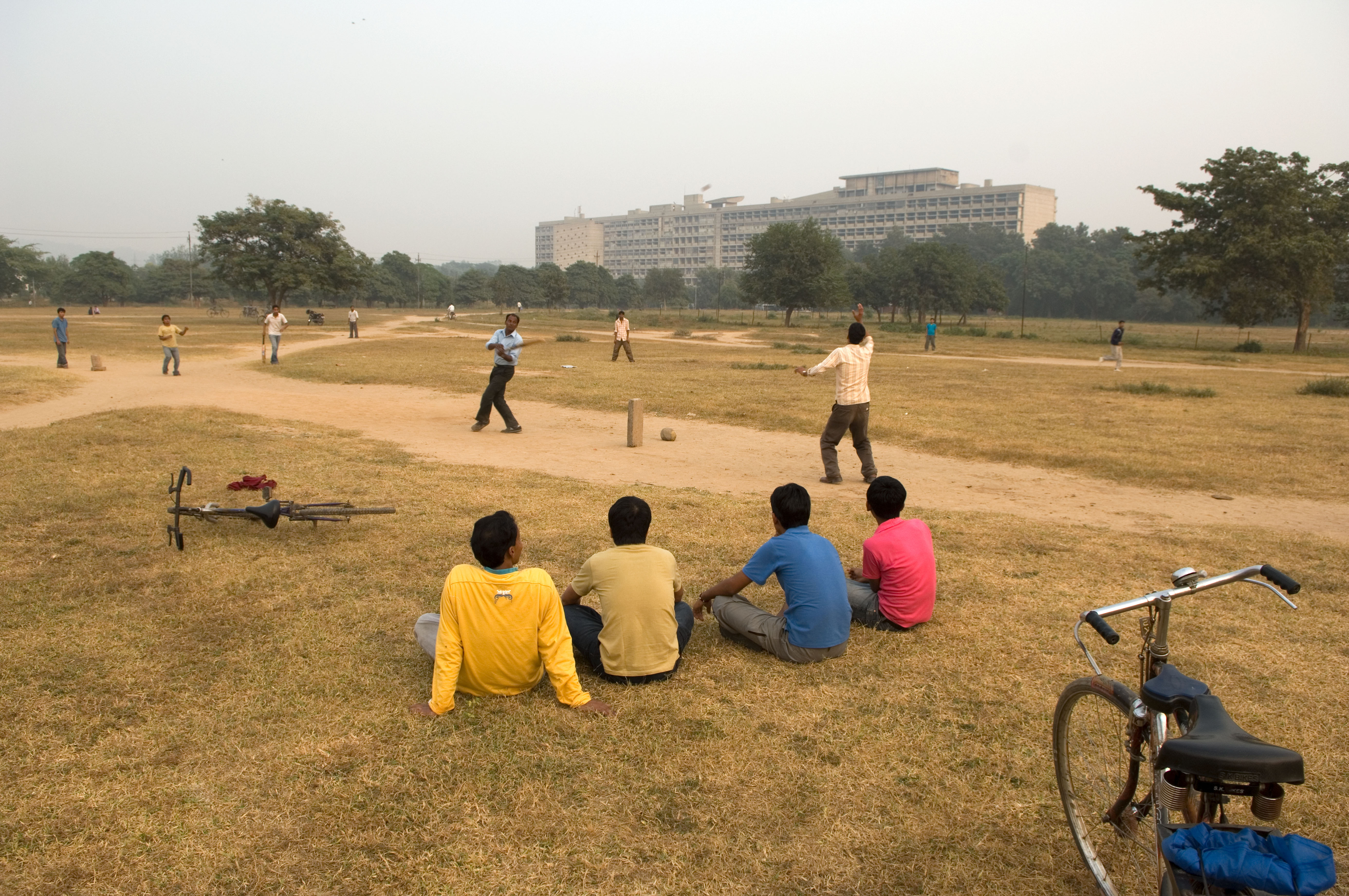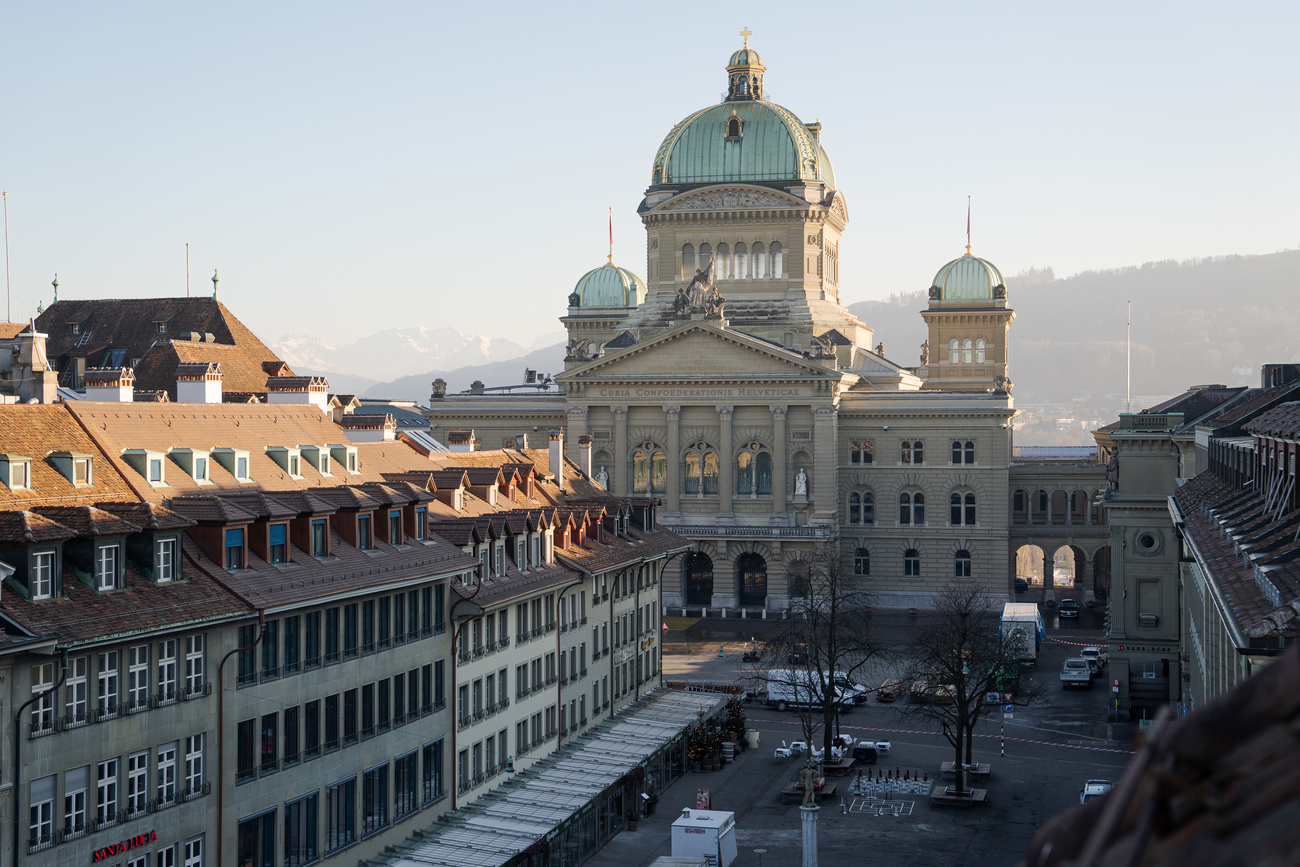

Switzerland Today
Dear Swiss Abroad,
How would you go about designing a city in a foreign country from scratch? Where would you start? Personally, I’d probably turn the job down, but Swiss designer and architect Le Corbusier couldn’t resist the challenge of being asked to create Chandigarh, the capital of the newly created Indian state of Punjab, in the 1950s. OK, the modernist concrete houses are by many accounts uninhabitable in summer, but it’s a fascinating story. Check out our gallery of Le Corbusier’s photos and sketches on location.

In the news: A hydrogen-powered train, bodycams on trains, and an increase in crimes.
A hydrogen-powered train from the Swiss railroad company Stadler has secured a place in the Guinness World Records. The Flirt passenger train covered 2,803 kilometres without refuelling or recharging in around 46 hours. The train has a maximum speed of 130km/h.
Swiss Federal Railways is testing the use of bodycams. They are intended to contribute to safety on public transport by de-escalating conflicts and to serve as evidence. The introduction of bodycams will be completed by the end of June 2024, according to a media report.
The number of crimes in Switzerland rose by 14% to 522,558 last year. Thefts of or from a vehicle increased by as much as 71.4% to 18,192 offences – the highest figures since the statistics were introduced in 2009.

One Swiss Abroad in the 1950s was architect and designer Charles-Édouard Jeanneret, aka Le Corbusier, who was asked to create the city of Chandigarh.
The publication of a facsimile edition of Le Corbusier’s sketchbooks reveals a snapshot of the moment when India finally felt free to shape its own future.
India, the cradle of some of the world’s oldest civilisations, was a very young country by the time it acquired its independence from the British empire in 1947. After the trauma of the partition that same year, which saw the creation of Pakistan and during which up to two million people were killed and 18 million displaced, leaders of the new India envisaged to project the “biggest democracy in the world” into the future by redesigning its architecture.
That’s what Jawaharlal Nehru, India’s first prime minister, had in mind when he invited Le Corbusier in 1951 to draw the plan of a capital for the newly created state of Punjab, a region cut in half by the partition. By that time, Le Corbusier was already an icon of modernist art and architecture, but to build the city of Chandigarh presented an unrefusable challenge. After all, it was nothing less than one of most ambitious experiments in urban planning and modern architecture of the 20th century.
Read the article and gallery to find out how Le Corbusier envisaged the construction of a new, modernist city from scratch.

The spring session of the Swiss parliament saw the reconstituted Swiss Abroad parliamentary group convene for its first meeting.
“Bees, the Swiss Guide and Scout Movement, and the Swiss Abroad have little in common, you would think. But they each have their own parliamentary group,” the Organisation of the Swiss Abroad explainsExternal link. Parliamentary groups offer like-minded members of the House of Representatives and the Senate the opportunity to “meet, interact and share views and ideas among themselves and with representative groups from outside”.
The article explains when the group was founded, why, and lists some of the main players involved.

Attempts by Russian President Vladimir Putin to implicate Ukraine in Friday’s terrorist attack on a concert hall near Moscow have been criticised by the Swiss media.
Gunmen men burst into the Crocus City Hall concert venue near Moscow, killing at least 137 people and wounding 182. Russia has detained four men, at least one a Tajik national, who it says directly carried out the attack. The Islamic State militant group has claimed responsibility. Today, however, Russia challenged assertions by the United States that Islamic State orchestrated the attack, accusing Washington of covering for Ukraine.
“This propaganda manoeuvre is all too transparent. Putin obviously wants to divert attention from his failure in the defence against terrorism and use the tragedy to further incite the population against Ukraine,” the Neue Zürcher Zeitung (NZZ) wrote in an editorialExternal link today.
“The massacre on Friday evening emphasises where the real threats to Russia lurk. The declaration of war by IS-K [an offshoot of the Islamic State terrorist militia] is a serious challenge, especially as Russia is home to millions of Muslims and migrant workers from Central Asian countries, among whom the terrorists can recruit helpers. Ukraine, on the other hand, is a threat invented from A to Z by the Putin regime.”
An adviser to the Ukrainian presidency, Mykhaïlo Podoliak, said that Ukraine, which has been facing a Russian military offensive for two years, “had absolutely nothing to do” with the shooting.
“There was never even the slightest security policy reason for the war against the neighbouring country,” the NZZ continued. “This campaign can only be explained by the ageing Kremlin clique’s delusions of power. Putin therefore has his priorities completely wrong. This underlines the extent to which Russia lacks a leadership that is genuinely concerned about the security of the country and its own population.”

In compliance with the JTI standards
More: SWI swissinfo.ch certified by the Journalism Trust Initiative





























